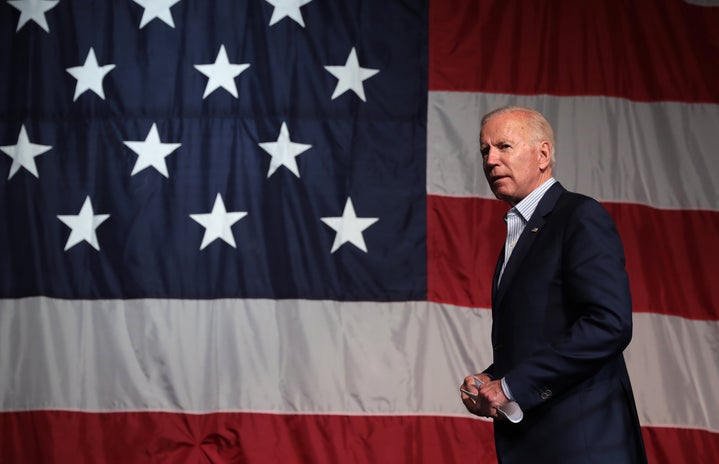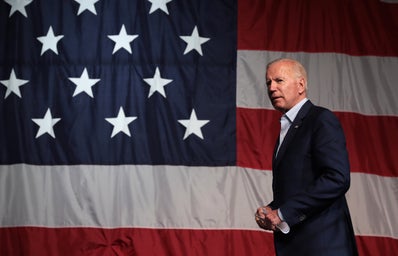October 2020 has arrived. As of right now, we’re less than 15 days away from the US Election on November 3rd. As former Vice President Joe Biden stated during his speech at Gettysburg this month, “We have it in our hands, the ultimate power. The power to vote. It’s the noblest instrument ever devised to register our will in a peaceable and productive fashion. And so we must. We must vote. We will vote. No matter how many obstacles are thrown in our way, because once America votes, America will be heard.”
The first presidential and vice-presidential debates have already passed – and while they clearly haven’t been the beacon of democracy, or even decency, that many had hoped for, the debates essentially boiled down to a brief discussion of high-level policy and a ton of viral moments. While a majority of American voters aren’t familiar with the minute details of a presidential candidate’s plan, such as…leading the country through the COVD-19 pandemic, they present a unique opportunity for viewers to get a better understanding of where each candidate stands on certain hot button issues (sorry, third party supporters).
After watching the entirety of both debates, I thought it would be a good idea to consider a question that many have probably been asking: are the presidential debates even worth watching? A list of pros and cons seemed appropriate.
Pro: The presidential debates offer voters a chance to see how each candidate behaves under pressure
Outside of debates, it can feel like everything a presidential/vice presidential candidate says is scripted. And to some extent, it can be – from speeches to social media posts, what a candidate says and does is often thoroughly vetted by others. As stated above, the debates present an opportunity for voters to see how each candidate performs under scrutiny of their opponent and the moderator’s questions. We’re able to get a better understanding of who we might be voting for – their demeanor, preparedness, charisma, etc.
For example, candidates during the first presidential debate were asked to respond to public criticism of their administrations’ past decisions. Take Chris Wallace’s question for President Trump, asking him whether he was “willing to condemn white supremacists and militia groups and say they need to stand down and not to add to the violence”. Rather than making that statement, however, the president gave a rather tepid denunciation for far-right organizations such as the Proud Boys, telling them to “stand back and stand by”. The question-dodging continued during the vice presidential debate on Wednesday when Vice President Pence was asked about the President’s commitment to a peaceful transfer of power, or Senator Harris on the possibility of presidential disability.
Con: The debate space can devolve into pointless jabs and arguments without substantive discussion
As you can probably tell, the debates often turned into an environment where productive discussion was overshadowed by bickering and general chaos. This occurred more frequently throughout the presidential debate (although Vice President Pence often spoke over his time limit and needed to be interrupted by the moderator several times). I think this video pretty much sums it up.
In the end, while neither candidate came out looking good, the real losers were the American voters. Most, including myself, weren’t able to make sense of the specific policies either candidate espoused, much less hear the justification for them. It was pretty depressing.
Pro: Watching the entire debate allows viewers to understand the full context of statements that may be undercut or misinterpreted by news outlets or others on social media
Like I’ve said before, watching the debates feels like watching an uncut version of each presidential candidate. On one hand, it might make for 1.5 hours of tedious television. On another, we get to hear what each candidate has to say in its entirety, rather than receiving an edited version on our timelines the next day. This can apply to any aspect of the debate, from the questions asked by the moderator, to the full response from each candidate.
For example, many pundits were quick to latch onto the headline that Senator Harris refused to state whether the Biden presidency would seek to pack the Supreme Court following Judge Amy Coney Barrett’s probable confirmation*. However, the context surrounding that question needs to be considered. First, the question was not posed by Susan Page, the moderator. It was raised by the vice president, notably when he was supposed to be answering the question about an oft-promised GOP alternative to the Affordable Care Act that would replace its protections for those with preexisting medical conditions. So, not only was Vice President Pence avoiding a question, but he was also using that time to demand that Senator Harris answer his own personal questions.
(*) As for the court-packing question, I would assume Senator Harris holds a similar position to former Vice President Biden’s in the previous video: “Whatever position I take, that will become the issue.” Their position now, however, is that American voters should be able to choose the president that makes the nomination to fill the Supreme Court vacancy.
Con: The moderator will not aggressively fact-check each candidate’s statements – it will require more work to keep updated on fact-checking during the debate
This one’s pretty obvious. Without the fact-checking that might be more accessible following a debate, it’s hard for live viewers to take anything either candidate says as fact. This might include statements that are essential to a candidate’s policy argument or statements about the opposition.
For example, President Trump argued (about the Green New Deal) that “they want to take out the cows”. This was marked false and misleading by NYT fact-checkers. Biden made a shocking and saddening statement that “one in 1,000 African Americans has been killed because of the coronavirus.” This was later marked as true. Thus, it might be easier for viewers to have access to the completed fact-checking prior to watching excerpts from the debate.
So, Should I Watch the Debates?
If voters do plan on watching the future debates live, it’s highly recommended that they keep an eye on the live fact-checking by trusted news sources such as NYT, NPR, and more (and use more than one if possible).
For the sake of debate (sorry I had to), I won’t conclusively tell readers whether or not to watch the upcoming presidential debates. I hope by sharing what I’ve learned and experienced from the first two debates, voters will make an informed decision for themselves. Personally, I wouldn’t expect my political opinions (aka who I’m going to vote for) to be shifted too much, and I’ve learned to take everything I hear with not a grain, but a pound of salt nowadays. Despite that, I’ll most likely watch the upcoming debates. Maybe. Unless I have a midterm the next day.
Time/Date of the upcoming debates:
- Presidential Debate #2 – Thursday, October 15th from 6:00-7:30 PM PT [EDIT: The second debate has since been cancelled. Both candidates hosted live town halls in lieu of the debate on separate networks.]
- Presidential Debate #3 – Thursday, October 22nd from 6:00-7:30 PM PT
Where to watch: CNN, ABC, NBC, CBS, Fox, and CSPAN
Don’t forget to vote/register to vote! Learn more about voting in your state at www.vote.org


